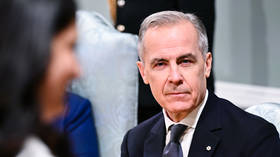 Medea Benjamin and Nicolas Davies have come out with the expanded and revised second edition of their book War in Ukraine. Defying logic, the subtitle is Making Sense of a Senseless Conflict.
Medea Benjamin and Nicolas Davies have come out with the expanded and revised second edition of their book War in Ukraine. Defying logic, the subtitle is Making Sense of a Senseless Conflict.
A blurb from professor Noam Chomsky calls it: “An invaluable guide.” I agree.
Media analyst Norman Solomon calls the book a “concise primer … historical context with balance and compassion.” Benjamin and Davies are compassionate advocates for peace; this is laudable and undeniable. However, too often information that criticizes all sides in a conflict, more or less equally, is passed off as balanced. Yet, when the preponderance of blame lies with one side in a dispute, to criticize equally would be unbalanced. War in Ukraine often comes across as unbalanced, and that starts with the title.
The authors give short shrift to the “Russian media narrative” notion of a “special military operation” (SMO, p 149) whereby Russia states that it is not conducting a war. The authors deal marginally with the distinction between SMO and war, (p 149) and it is left to the reader to just accept the authors’ assertion that it is a war and not a SMO. But what is a SMO? Basically, a SMO is a political-military concept used to downplay the severity and scope of a military action, while “war” is a broader, more objective term for a large-scale armed conflict. Thus, calling it a SMO versus war points to a semantic distinction aligning with a certain narrative.
Putin says Russia’s hands were forced by the US-NATO to launch the SMO:
They [US-NATO and Ukraine] did not leave us any other option for defending Russia and our people, other than the one we are forced to use today. In these circumstances, we have to take bold and immediate action. The people’s republics of Donbas have asked Russia for help.
For the most part, War in Ukraine provides most of the requisite background leading to Russian invasion, inter alia:
- NATO breaking its agreement to not move one inch eastward toward Russia.
- The Budapest Memorandum of 1994 affirmed a commitment “to respect the independence and sovereignty and the existing borders of Ukraine,” and “obligation to refrain from the threat or use of force against the territorial integrity or political independence of Ukraine…”
- The US was instrumental in fomenting the Maidan Coup/Revolution to overthrow the elected government of Viktor Yanukovych to install a US-preferred president.
- The machinations of the US-NATO in the politics of Ukraine and the involvement of US-NATO in a proxy war.
- Western Ukraine launched war on the eastern oblasts of Ukraine.
- Kyiv failed to implement the Minsk Agreements to end the west versus east fighting in Ukraine.
- Nazi ideologues constituted a major fighting force for Kyiv.
- Western media played a biased role in its coverage.
Questioning Balance
The authors write, “… when Russia jumped on the might-makes-right bandwagon by tearing up the UN Charter and invading Ukraine.” (p 6) Thereby, “The people of Ukraine were unwittingly caught in a perfect storm, whipped up not only by brutal Russian aggression but also by astonishing Western hubris and stupidity.” (p 6) This dismisses or ignores that Putin launched the SMO “in accordance with Article 51 (Chapter VII) of the UN Charter, with permission of Russia’s Federation Council, and in execution of the treaties of friendship and mutual assistance with the Donetsk People’s Republic and the Lugansk People’s Republic…” War on Ukraine is somewhat taciturn about the killing and aggression preceding Russia sending its military into Ukraine on 24 February 2022.
In mid-February 2014, the Maidan Coup (“coup” because an elected government was violently overthrown) resulted in the deaths of 107 civilians and 13 police officers. In the subsequent fighting, 14,000 people were killed, according to the estimates of the Office of the United Nations High Commissioner for Human Rights from 14 April 2014 to 31 January 2022 in eastern Ukraine. In essence, if one posits a Russian aggression, then it seems it can also be posited that it was in response to Ukrainian aggression against Donbass with its sizeable proportion of ethnic Russians. In other words, the Russian aggression is to protect ethnic Russians from the initial aggression of Ukraine.
Yet, Benjamin and Davies frame one question as: “And why did Russia decide to invade Ukraine?” (p 8) There was no question posed: “And why did western Ukraine decide to invade eastern Ukraine?” Why decide to invade Ukraine? (Balanced another way: Why did Russia feel forced to launch the SMO?) Putin stated,
The purpose of this operation is to protect people who, for eight years now, have been facing humiliation and genocide perpetrated by the Kyiv regime. To this end, we will seek to demilitarize and denazify Ukraine, as well as bring to trial those who perpetrated numerous bloody crimes against civilians, including against citizens of the Russian Federation.
Benjamin and Davies do speak to why the West backed the coup and post-coup governments in Ukraine thorough financing from the IMF: “The thrust of the IMF-mandated reforms was not to give Ukraine back to its people, but to open it up to Western capital and to partnerships between local oligarchs and Western ones with even deeper pockets.” (p 42)
The authors quoted Putin from a presidential address in April 2021 warning:
Those behind provocations that threaten the core interests of our security will regret what they have done in a way that they have not regretted anything for a long time. (p 65)
Yet War on Ukraine is decidedly lacking in presenting and analyzing the speeches Putin made in an attempt to end the warring in Ukraine and preclude Russia’s entry into the fighting.
It is a fact that the US-NATO rejected the security agreement proffered by the government of Russia to end the fighting in Ukraine and provide for the security of all parties. Neither did the US-NATO come back with a counter proposal. Clearly, Russia was seeking to avoid military action. From the decision of the US-NATO that “summarily dismissed Russia’s proposals” (p 68) one might well surmise that the West was hoping to force Russia to take up arms, which Russia obliged.
Benjamin and Davies focus on the illegality of Russia’s SMO. (p 72) There certainly are laws that one can cite to criticize Russia on the legality of its SMO. Even if legal arguments might find against Russia’s militarism, should extant law always be the final arbiter on right and wrong? Is the launching of military action to save lives and staunch further killing not morally warranted? Many have clamoured for military action to stop the genocide being wreaked against Palestinians. Should the courageous state of Yemen be legally condemned as a scofflaw state for coming to the aid of Palestine?
Benjamin and Davies bring up “the allegations of serious Russian war crimes in Bucha and Mariupol.” (p 76) The authors do not consider that this might have been a false flag carried out by Ukraine. The Bucha allegation is forcefully refuted by former US Marine Scott Ritter who says “hundreds of Ukrainian civilians in Bucha … were slaughtered by Ukrainian security forces.” Ritter provides a narrative of what happened and avers, “The evidence of this crime was overwhelming.” That may be so, but what Ritter provided was a narrative and not evidence.
The authors write that in the first phase of the Russian penetration into Ukraine that Russia failed to take Kyiv. (p 79) The authors are attributing Russian intentionality to take the Ukrainian capital. In stating that, Benjamin and Davies call into question the veracity of Putin who has stated: “It is not our plan to occupy the Ukrainian territory. We do not intend to impose anything on anyone by force.”
Early in the Russian SMO, the authors cite Amnesty International reports of Russia’s “deliberate killings of civilians, rapes, torture, and inhumane treatment of prisoners of war.” (p 80) Is Amnesty International a credible source? Paul de Rooij has written a few articles highly critical of Amnesty International (“Amnesty International: Trumpeting for war… again,” “Amnesty International: The Case of a Rape Foretold,” “Where was Amnesty International during the Genocide in Gaza?” as have others; e.g., Khaled Amayreh, “Amnesty’s Scandalous Obliquity” and Binoy Kampmark “Finding the Unmentionable: Amnesty International, Israel and Genocide.”) One wonders what exactly is a report? Testimony given by people? That has validity if the testimony is verifiable or at least has genuine verisimilitude.
Patrick Lancaster, an on-the-ground independent American journalist in Ukraine, for some reason not sourced by Benjamin and Davies, has spoken of several war crimes by Ukraine.
The authors write that Russia violated the Budapest Memorandum. (p 101) This is true, but it shouldn’t be stated without context. The memorandum was to provide security guarantees for Ukraine. But security for one state was not meant to diminish the security of the Russian signatory and be to the detriment of ethnic Russians in Ukraine. Certainly when Russia signed the memorandum it did not foresee that other signatories to the memorandum, the US and UK, would undermine democracy in Ukraine, weaponize and militarize Ukraine, and seek to draw it into NATO despite it being a Russian redline.
Benjamin and Davies claim that Russia violated the UN Charter when it launched its SMO against Ukraine. (p 118-120, 128) What the authors do not discuss is the Responsibility to Protect, a global political commitment, endorsed by all member states of the United Nations at the 2005 World Summit. At R2P’s core is that sovereignty is not just a right but a responsibility. When Kyiv attacked eastern Ukraine it violated its responsibility for the security and welfare of all its citizens and opened the door for R2P to be invoked.
Consider whether the authors are tendentious in the following depictions:
As reporters got swept up in Zelenskyy’s calls for more Western military involvement, they often became purveyors of fake news. There were surely accurate stories of real Ukrainian heroism, but some turned out to be exaggerated, embellished, or even simply invented. (160)
If there “surely are accurate stories of real Ukrainian heroism,” — and there must be — then why the need for the fake news? There are several admonitions about accepting the truth of statements when previous statements have been exposed as disinformation, from Aesop’s boy who cried wolf to “Fool me once, shame on you; fool me twice shame on me” and the Latin dictum: Falsus in uno, falsus in omnibus.
There is credible evidence of summary executions, rapes, and torture carried out by Russian forces in Ukraine, and evidence of Ukrainian war crimes too. (p 162)
There is evidence of Ukrainian war crimes, not credible evidence and the crimes are not spelled out as summary executions, rapes, and torture.
And the question for this reader is: what is the evidence? Is it sufficient for a writer to merely state that there is evidence and that the evidence is credible? Would critical thinkers accept such an assurance?
The authors write of “Russia’s annexation of Crimea.” (p 181)
According to DeepSeek: “In international law, annexation is the forcible acquisition of territory by one state at the expense of another state. It involves the formal act of claiming sovereignty over territory that was previously under the control of another sovereign entity.” Much more context is required to just call it an annexation. This was a process whereby the people of Crimea, predominantly ethnic Russians, exercised their right under Article 1 of the UN Charter to self-determination, which they overwhelmingly voted for in a referendum. Also the historical context is relevant. Soviet president Nikita Khrushchev had formally transferred Crimea from the jurisdiction of Russia to Ukraine in 1954.
*****
Benjamin and Davies conclude:
As with this war and the crisis that led up to it, Russia is accountable and responsible for its own actions, which have violated the most fundamental principles of international law. But our leaders in the West are also equally responsible for their actions and they too have acted irresponsibly and dangerously. (p 209)
It is unassailable logic: that we are all responsible and accountable for our actions. Notable is that no violations of fundamental principles of international law are ascribed to the Western leaders. What about the casus belli; which entity provoked the war? Did Putin provoke the war? That would be a risible contention because Putin made overtures to US-NATO seeking security guarantees, but he was thoroughly rebuffed by the West. US-NATO was going to militarize and arm Ukraine and likeliest place missiles within Ukraine.
Speaking of responsibility, is it not the responsibility of any country’s leadership to provide security for the country and its people? Putin has identified this as an existential threat to Russia.
The intentions of the US in its proxy war against Russia have been made clear by several politicians, both Democrats and Republicans. For example, US senator Lindsay Graham, after meeting with President Zelenskyy Kyiv in August 2023, stated:
“The Ukrainians are fighting to the last person, and we’re funding it. It’s a good deal for us.”
“It’s the best money we’ve ever spent. Without a single American soldier dying, we can weaken the Russian military.”
Several other US politicians have made the same argument. For example, Mitch McConnell, Senate Minority Leader said,
“The Ukrainians are destroying the army of one of our biggest rivals without having to put American soldiers at risk. We’re rebuilding our industrial base. The rest of the world is watching. This is a direct investment in cold, hard American interests.”
Also, the West has a history of attacking Russia. Would Putin have been faithful to addressing the security situation of Russia if he had allowed NATO to deploy troops and missiles in Ukraine? It is often said that Putin does not bluff. What would his reputation have been if he did not stick to his redlines of no NATO in Georgia and Ukraine?
Shouldn’t people devoted to peace be focused on arguing for the dismantling of NATO; adherence to the Treaty on the Non-Proliferation of Nuclear Weapons, thereby denuclearizing; and engaging in worldwide disarmament? This is what Benjamin and Davies do best.
Benjamin and Davies acknowledge the insight offered by several persons for their book. (p 235-236) The absence of certain persons who speak more understandingly of Russia taking on US-NATO-Ukraine, for instance, former Marine Scott Ritter, retired colonel Douglas Macgregor, and professor Jeffrey Sachs is suggestive of the authors’ leaning. Jeffrey Sachs wrote a recent essay that stands in contrast to many conclusions reached by Benjamin and Davies.
War in Ukraine is very readable, and it is informative. It is a great primer. But as for any information proffered, by whatever source, demand the evidence, question the evidence, and scrutinize the analysis.
The post
Russia’s Special Military Operation in Ukraine first appeared on
Dissident Voice.
This post was originally published on Dissident Voice.













